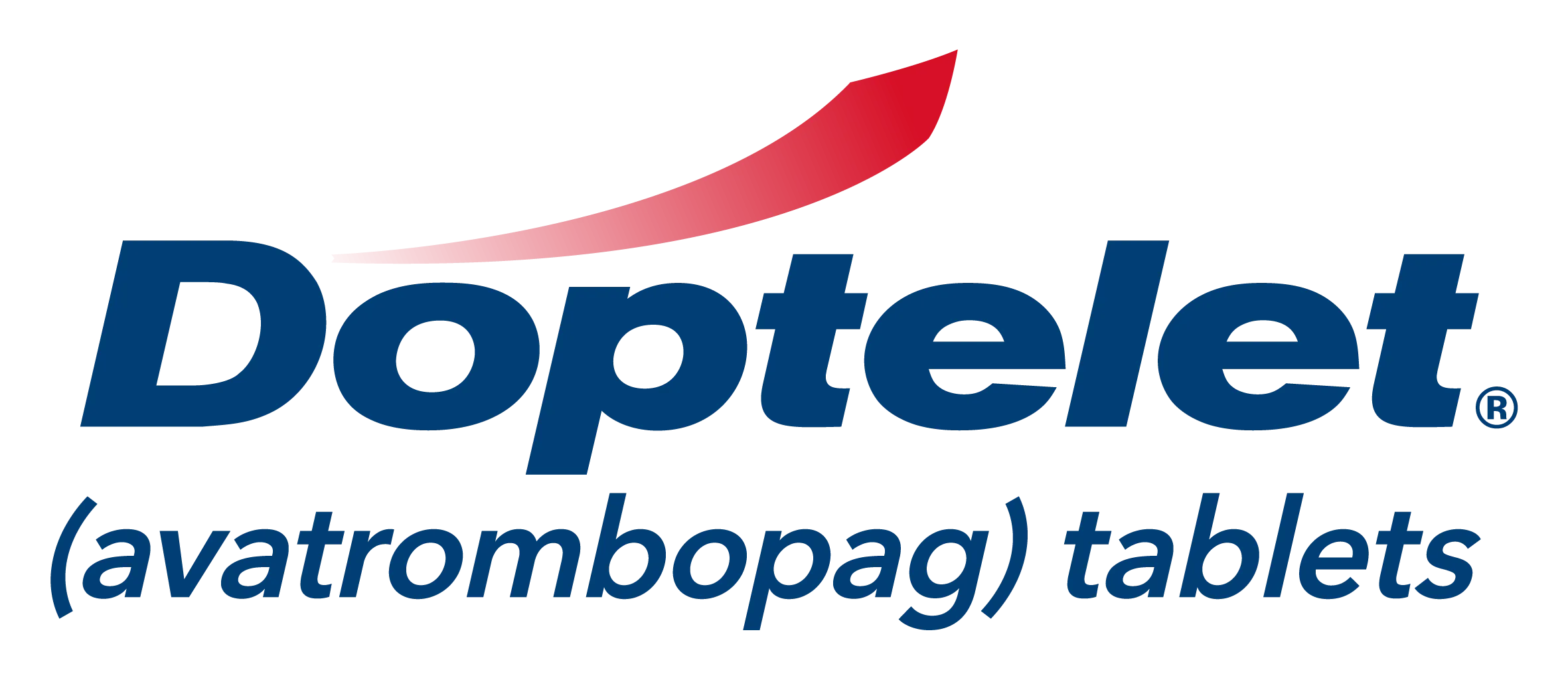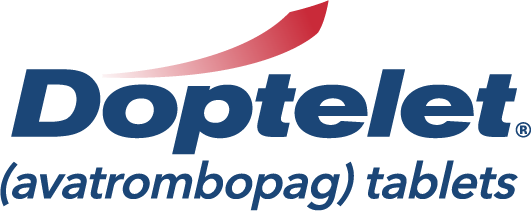
About ITP
Doptelet for the treatment of primary chronic immune thrombocytopenia (ITP) in adult patients
What is primary chronic ITP?
ITP is an autoimmune disease that affects 3.3 per 100,000 individuals annually. It is characterised by low platelet counts (<100,000/µL or 100 x 109/L) and increased bleeding risk.1,2 The pathophysiology of primary adult ITP can be quite complex and is not fully understood. In general, primary ITP manifests as thrombocytopenia caused by platelet destruction and suppressed platelet production.3
There are 2 types of immune thrombocytopenia, based on the cause of the condition. Most adults who are diagnosed with ITP will have primary ITP. It is considered an acquired immune disorder, meaning it was not inherited genetically or caused by another illness. Secondary ITP is more commonly found in children after an inciting event such as a viral or bacterial infection. It is associated with better outcomes as it is possible to treat or eliminate the infection. Primary ITP makes up approximately 80% of adult ITP diagnoses.2,3
The impact of ITP
Petechiae, bruising, epistaxis and gum bleeding are common symptoms associated with ITP.4 Though severe bleeding events such as intracranial haemorrhage or gastrointestinal bleeding are relatively uncommon, they are the primary concern that drives treatment of ITP.4 The condition can greatly impact patients’ quality of life in a variety of ways other than bleeding, with fatigue and anxiety around maintaining a stable platelet count being reported as frequent and severe.5
Treating primary chronic ITP
Corticosteroids are the standard first-line treatment for newly diagnosed patients with ITP, though guidelines recommend they are used for a limited amount of time.6–8 The main goal of subsequent treatment is to attain a sustained increase in the platelet count that is considered haemostatic for the individual patient, while minimising AEs, and allowing for the possibility of attaining remission.8 International guidelines recommend using TPO-RAs as second-line therapy in adult patients with chronic ITP.6–8
How can Doptelet help patients
with primary chronic ITP?
Doptelet is an orally administered TPO-RA that mimics the biologic effects of TPO in stimulating the development and maturation of megakaryocytes, leading to an increased platelet count.9 It is approved for the treatment of primary chronic immune thrombocytopenia in adult patients who are refractory to other treatments such as corticosteroids or immunoglobulins.9 TPO-RAs, including Doptelet, are recommended by ICR guidelines as a preferred subsequent therapy for adult patients with chronic ITP.*8
*Grade A recommendation, ≥1 RCT as part of a body of literature of overall good quality and consistency addressing specific recommendation; evidence level Ib, evidence obtained from ≥1 RCT.8
Doptelet is indicated for the treatment of primary chronic immune thrombocytopenia (ITP) in adult patients who are refractory to other treatments (e.g. corticosteroids, immunoglobulins).9
AE, adverse event; ICR, international consensus report; ITP, immune thrombocytopenia; RCT, randomised controlled trial; TPO, thrombopoietin; TPO-RA, thrombopoietin receptor agonist.
References
1. Rodeghiero F et al. Blood. 2009; 113(11):2386–2393. 2. Zufferey A et al. J Clin Med. 2017;6(2):16. 3. Lambert MP et al. Blood. 2017; 129(21):2829–2835. 4. Kohli R et al. Hämostaseologie. 2019; 39(3):238–249. 5. Cooper N et al. Am J Hematol. 2021; 96(2): 188–198. 6. Matzdorff A et al. Oncol Res Treat. 2018;41 Suppl 5:1–30. 7. Neunert CE et al. Blood Adv. 2019; 3(23):3829–3866. 8. Provan D et al. Blood Adv. 2019; 3(22):3780–3817. 9. Doptelet EMC Summary of Product Characteristics. Available at: www.medicines.org.uk/emc/product/11837/smpc#gref Last accessed: April 2025.
Adverse events should be reported. Reporting forms and information can be found at
www.mhra.gov.uk/yellowcard or search for MHRA Yellow Card in the Google Play or Apple App
Store (for United Kingdom) and www.hpra.ie (for Republic of Ireland). Adverse events should also be reported to Swedish Orphan Biovitrum Ltd at [email protected] or Telephone +44 (0) 800 111 4754


